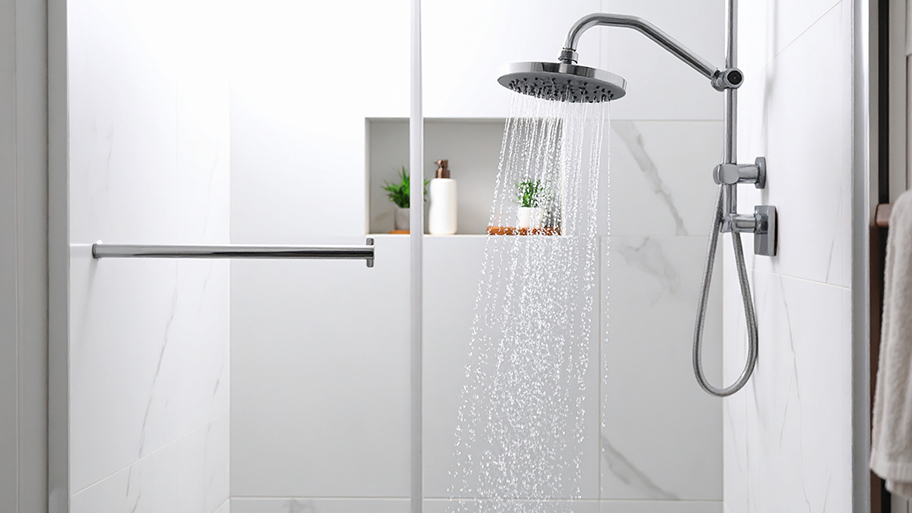
Water softener repair costs can add up, but they’re almost always worthwhile. Use this guide to see what your project is going to cost before you get started.
It may seem like magic, but this handy device relies on science to soften water


More than 80% of U.S. homes have hard water.
A water softener uses ion exchange to remove hard minerals.
A salt-free system, also known as a conditioner, changes the chemical structure of hard minerals.
A water softener costs $500 to $1,700 for a single-tank ion exchange model.
Your water softener works hard to remove hard water from your home, replacing it with a softened alternative that won’t cake your faucets in calcium buildup or dry out your skin. But have you ever actually thought about how this humble appliance really works? Let’s explore the ins and outs of a water softener.
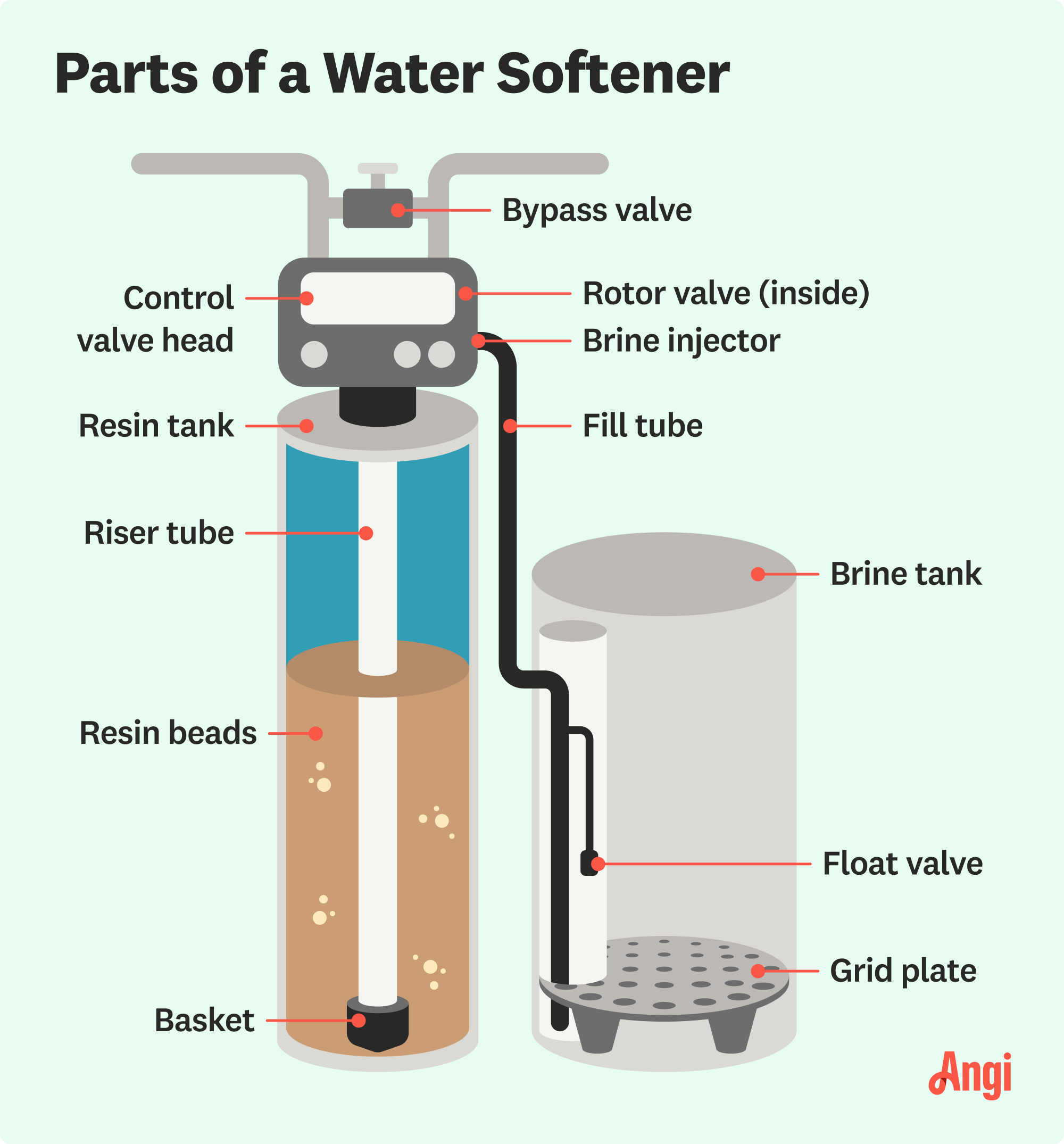
A water softener is an appliance that removes minerals, like calcium and magnesium, from hard water. It replaces the hard minerals with sodium or potassium, making the water “soft.” This is important because hard minerals can build up in faucets and household appliances, and they can lead to dry skin and hair. Considering that more than 80% of homes in the U.S. have hard water, a water softener is an important part of many homes today.
There are many parts of a water softener that work together to remove the hard minerals. First, water comes in from the water supply to the water softener, where it goes into a resin tank. In the resin tank, resin beads attract the hard minerals from the water. These minerals are swapped with sodium (or potassium) ions on the resin beads.
From there, the softened water exits the system and goes to your home. But what happens to all of those minerals? The water softener has another tank, called the brine tank, where water softener salts are dissolved into water. When the water softener enters a regeneration cycle, it pumps the brine from the brine tank into the resin tank, where the brine replenishes the salt ions on the resin beads and flushes away the minerals out of a drain line.
There are two main types of water softeners: those that use sodium or potassium to swap with the hard minerals in water and those that change the chemical structure of the hard minerals. To choose the right water softener for your home, you’ll want to consider how each type works.
Ion exchange water softeners are more widely available and less expensive. In this model, the water softener exchanges ions on the resin beads for the hard mineral ions on the water. Then, water from the brine tank helps replenish lost ions in the resin tank and drains away the hard minerals.
Commonly, water softeners use sodium, but what if you prefer a salt-free system? You can use a potassium “salt” alternative in an ion exchange water softener, or you can install a salt-free water softener. Also called a water conditioner, these units don’t use electricity or generate wastewater. Instead, they crystallize hard minerals in the water to minimize buildup without completely removing the minerals from the water.
A water softener is best for homes with harder water. Because they actually remove the hard water minerals, water softeners can be more effective at preventing mineral buildup in faucets and appliances. Water softeners are also more common, making them more accessible and more affordable for many households.
For some people, they may just like the taste and texture of their water as-is. By using a water conditioner, you can still enjoy the minerals in your water without affecting taste or giving your water a more “slippery” or thinner feeling the way a water softener does.
Some municipalities have restrictions on brine wastewater. If this is the case in your area, a salt-free system may be the best option for you. Salt-free conditioners are also low-maintenance because you don’t need to refill the brine tank with salt every month or two. A salt-free system may save you some money on energy bills compared to a water softener, but they do cost more to install.

There are many benefits of using a water softener. Many homes, whether they have city water or well water, deal with hard water, so a softening system can mitigate problems that come with high mineral content in your H2O. Some benefits of water softeners include the following:
They can alleviate discomfort from dry skin or brittle hair.
They keep laundry vibrant in color and soft to the touch.
They extend the life span of appliances by preventing limescale buildup.
They help you save on cleaning time by allowing soap to lather more easily.
They improve the efficiency of your water heater.
However, a water softener may not be the right choice for everyone, especially if you don’t have time to keep up with maintenance or if you live in an area with brine restrictions. Some drawbacks of water softeners include the following:
They use energy to soften water and run regeneration cycles, costing you money in electric bills.
They frequently produce wastewater.
You have to refill the brine tank with salt every six to eight weeks.
They can be costly, depending on the type you choose.
A water softener costs anywhere from $500 for a small, single-tank ion exchange unit to over $6,000 for a double-tank ion exchange unit for a large household with high water usage. On average, you’ll pay $1,500 for a standard ion exchange model and installation.
It’s important to hire a local water softener installation company to make sure everything is installed correctly and the settings are adjusted just right. Otherwise, you risk shortening the life span of your water softener.
Buying a water softener is a personal choice that comes with a handful of pros and cons that can impact your final decision. Here are a few factors that may sway your mind one way or the other:
If you live in an area with very hard water, a water softener is definitely something you should consider. However, if you live somewhere with only moderately hard water, then it might not be worth the investment.
Buying a water softener comes with added maintenance costs, water softener repair costs, and slightly higher water bills. To lengthen your water softener’s life span, you’ll need to perform routine inspections and keep up with regular maintenance.
A water softener can lead to better-functioning appliances, like water heaters and dishwashers, which means lower energy bills and longer-lasting appliances.
From average costs to expert advice, get all the answers you need to get your job done.

Water softener repair costs can add up, but they’re almost always worthwhile. Use this guide to see what your project is going to cost before you get started.
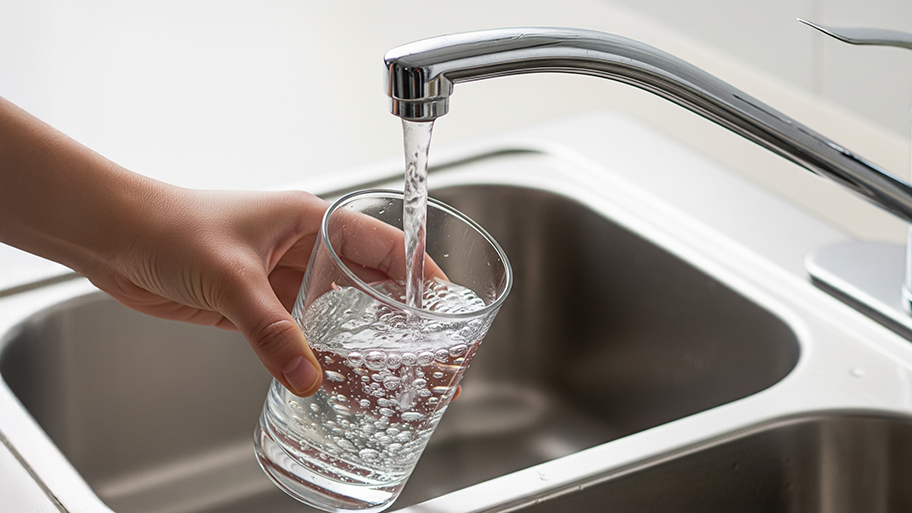
On average, a reverse osmosis water filter costs around $2,200, but there are a few variables that impact the total price. Learn about them in this guide.
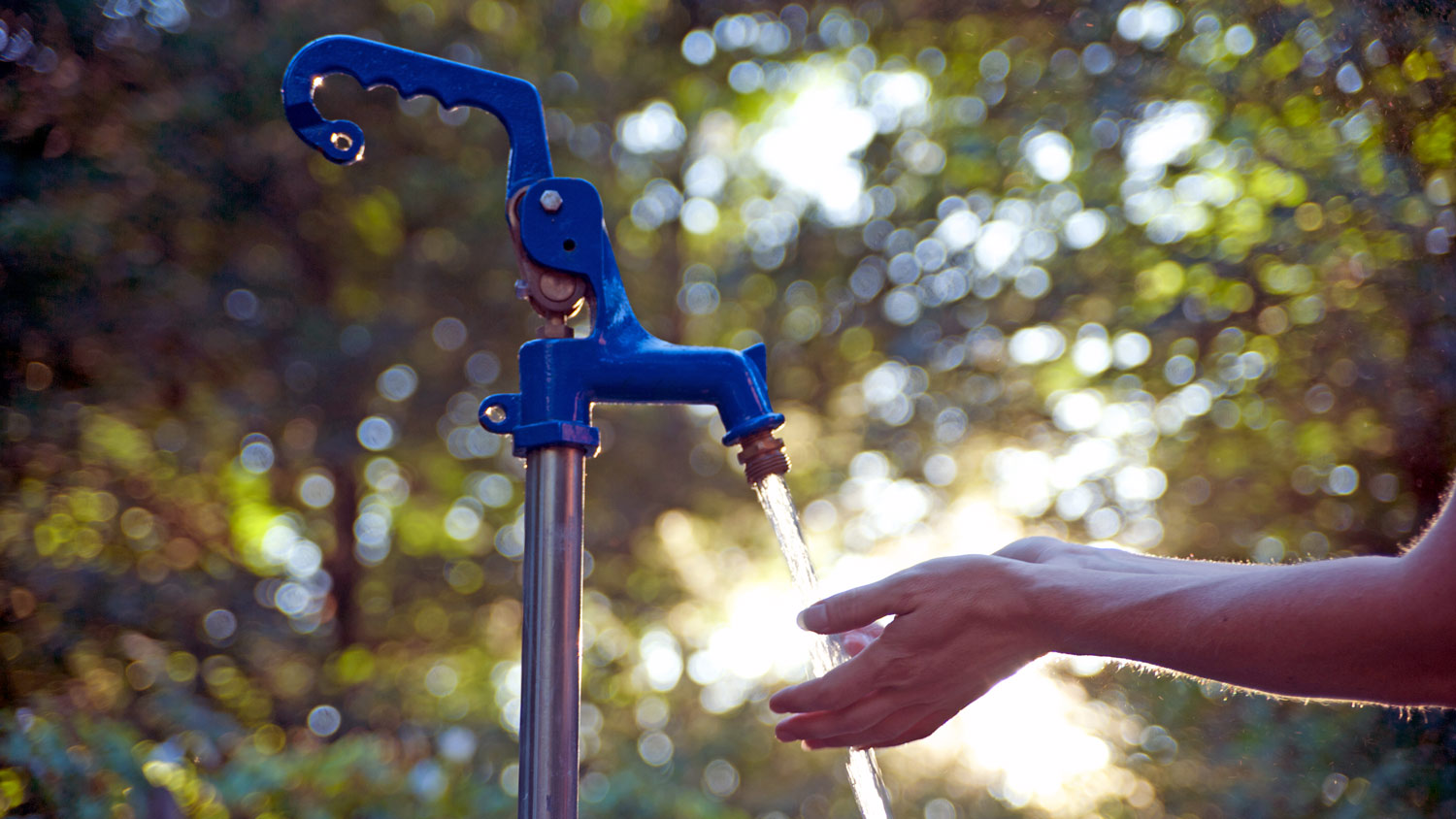
Discover how much well water treatment systems cost, including installation, maintenance, and tips to save. Get expert insights to plan your water system project.
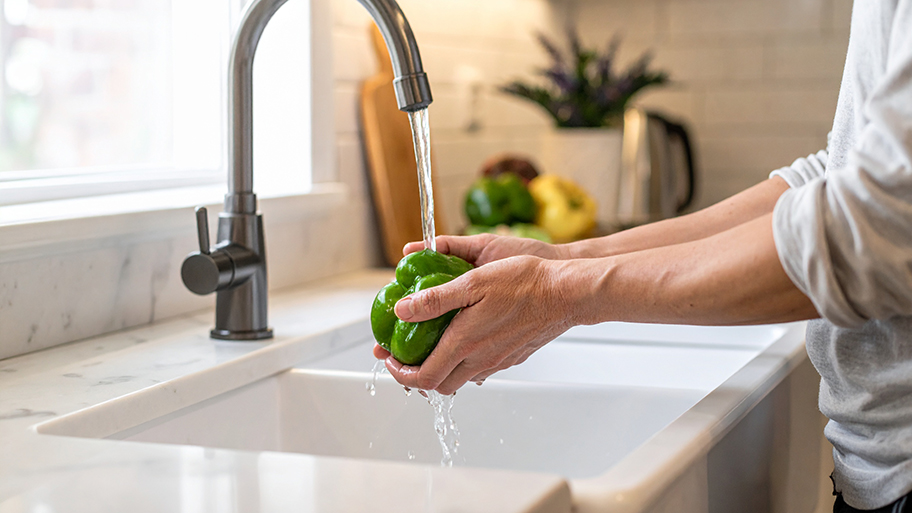
Whether you have a fridge filter, pitcher filter, or end-of-faucet filter, learn how to clean a water filter to ensure pure, fresh water with these steps.

Discover the key differences between a water filter versus water purifier. Find out which option is best for your household's water needs.

Learn how to tell if you have hard or soft water, how to test your water yourself, and what to do if you have hard water.